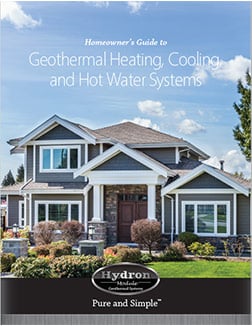When cool weather sets in, do the dollars escape your wallet just as quickly as the warm air escapes your windows? Does the balance in your checkbook after bill-pay day look like that skimpy insulation in your attic? Maybe you’ve decided it’s time to finally get serious about saving energy.

A home energy audit is a great place to start. It typically involves an assessment of your home and an analysis of the findings. You’ll learn:
- Areas where your house loses energy, and
- Steps you can take to reduce those losses and save money.
An audit can help you establish priorities and plan the best use of your resources. It can also help you secure additional resources like grants, rebates, loans, and tax credits that make energy upgrades affordable.
Answers to these five questions will get you started.
1. WHO CONDUCTS A HOME ENERGY AUDIT?
The U.S. Department of Energy recommends contacting your state or local government energy or weatherization office for the names of companies or organizations that conduct audits. Your utility company may conduct audits or recommend local energy auditors who can do the job.
Good to know: Look for a certified home energy auditor. Presently, the U.S. Department of Energy recognizes eight certification programs.
2. HOW MUCH DOES AN ENERGY AUDIT COST?
This is an area where you may spend a little money to save a lot. A home’s size and age, its geographic location, and the level of the audit all influence its cost. According to Angi, energy audits run between $207 and $679. On average, an audit costs $420.
Good to know: Check with your utility company to see if it provides audits for free. A complimentary audit, however, may cover fewer areas of inspection.
3. WHAT DOES AN ENERGY AUDIT ENTAIL?
It depends on the level of audit and the kind of equipment required for diagnostics.
Level 1 – This simple energy audit involves a walk-through inspection and review of utility bills. It typically requires no diagnostic tools.
Level 2 - In this more thorough examination, the auditor looks closely at your HVAC system, your appliances, and your home’s “envelope.” A Level 2 audit may involve diagnostic tools like thermal imaging cameras and blower door tests that determine leakage. The auditor produces a more detailed report, often with a prioritized list of recommended improvements.
Level 3 - Though this most comprehensive audit is generally used for commercial buildings, some homeowners request it when they suspect complex energy issues. Level 3 audits involve advanced diagnostics. They may include computer simulations of how a building uses energy, along with projected improvements that will yield the most savings.
Good to know: When auditors assess the “envelope” of your home, they examine the physical boundary that separates the interior spaces from exterior space. Think walls, roof, windows and doors, foundation, insulation, and air sealing.
IS IT TRUE THAT I CAN RECEIVE A TAX CREDIT FOR HAVING A HOME ENERGY AUDIT?
Yes, an assessment of your primary residence may qualify for a federal tax credit of up to $150. To qualify, a home energy auditor must conduct the audit and submit a written report that identifies:
- The most cost-effective energy efficiency improvements you can make, and
- An estimate of the energy and cost savings you’ll realize with those improvements.
Good to know: Beginning in 2024, the auditor must be certified through one of the Department of Energy’s recognized programs. The report must include the auditor’s employer identification number (EIN) and information about the auditor’s certification. Learn more from the IRS here.
5. WHAT IS A “PAYBACK” ANALYSIS?
Level 2 audits often include payback analyses. These projections help homeowners understand the time it will take to recoup their initial investment through energy savings.
Good to know: By identifying which improvements will offer the quickest payback, you can focus on addressing the most cost-effective solutions first.
IF YOUR AUDIT REVEALS ROOM FOR IMPROVEMENT IN HEATING AND COOLING
Geothermal heating and cooling is four times more efficient than gas forced air and can help you cut your monthly energy costs by up to 70%. Learn more about geothermal, solar panels, air source heat pumps, and other energy savers by contacting the folks at Enertech today.


